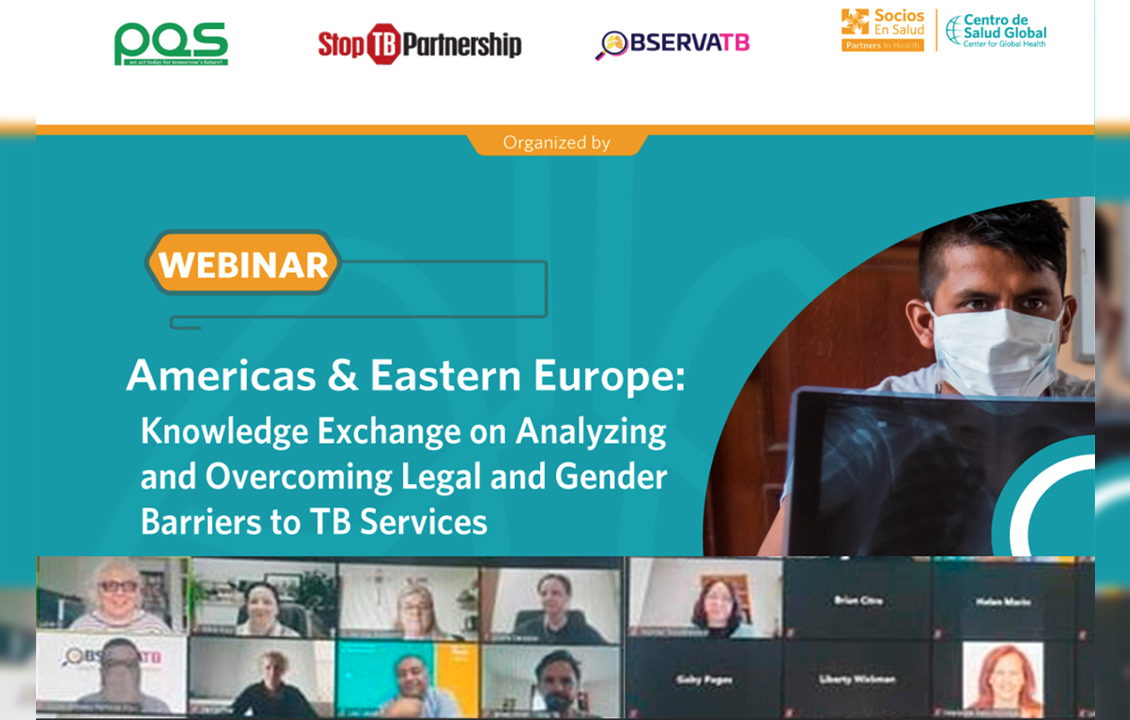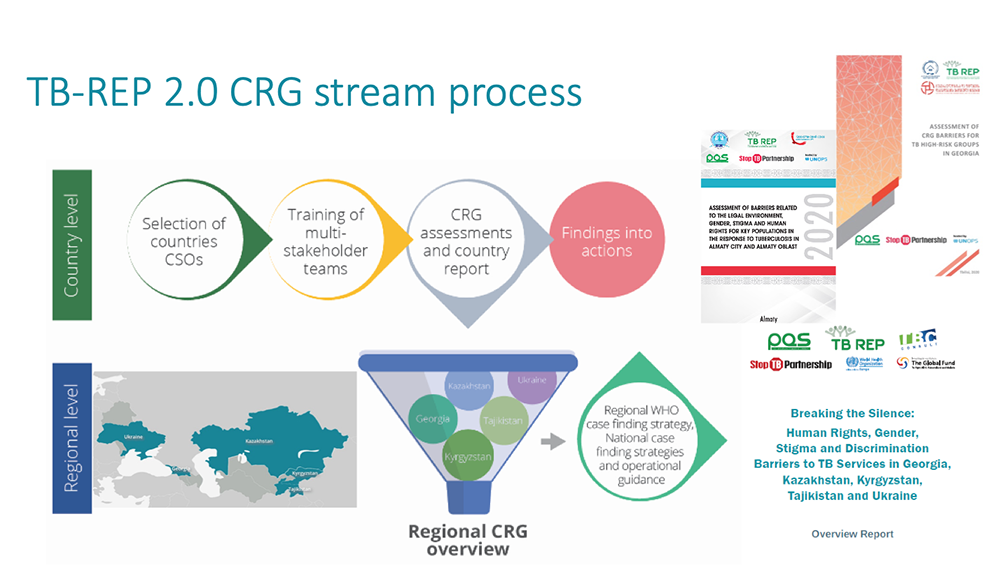
A virtual experience exchange meeting on conducting regional TB CRG (community, rights and gender) assessments was held on 26th February 2021. The experts of PAS Center, who carried out CRG assessment in the TB-REP countries of the Eastern Europe and Central Asia region in 2019-2020, shared their experience with colleagues from Latin America and the Caribbean - Socios En Salud - Partners In Health Perú. They, in their turn, are beginning preparatory work for the CRG Assessment in 11 countries of the Americas.
Lucica Ditiu, the Executive Director of the Stop TB Partnership and facilitator of the event, noted that this sharing of experiences between two regional TB grants from the Global Fund is a very valuable opportunity for horizontal collaboration and a practical approach to accelerate the pace of implementation of TB CRG assessments.
Experiences in conducting assessments in TB-REP countries were presented by: Stela Bivol and Liliana Caraulan, PAS Center, as well as by Nonna Turusbekova and Samantha Sokolovski, TBC Consult.
The main focus of the dialogue included discussion on:
Stella Bivol, the Director of PAS Center, shared lessons learned while organizing the CRG Assessment process at the country and regional levels. She also noted opportunities to accelerate pace in conducting assessments in parallel in 11 countries in the context of COVID-19. According to Stela, namely new COVID-19 conditions made possible the experience exchange between two Global Fund regional projects working in the same direction and thanked Stop TB Partnership for providing such an opportunity.

Liliana Caraulan, TB-REP Program Coordinator, shared some practical advice with colleagues from Latin America and the Caribbean while outlining the challenges, opportunities and lessons learned in implementing CRG assessments in Eastern Europe and Central Asia. So, in her opinion, engaging the NTP and other national partners from the outset is key. It is imperative to ensure that all stakeholders participate in the inception meetings and national consultations, validation workshops and the development of action plans based on the findings. Community based organizations are the best partners for CRG assessments. They are better positioned to spot the limitations faced by specific vulnerable population or subpopulation. Regional planning helps overall coordination, but focused work at the local level is essential for each country. “The CRG assessment is a starting point, not an ultimate goal: prepare for a long journey and pave the way for a sustainable CRG response,” summed up Mrs. Caraulan.
Nonna Turusbekova and Samantha Sokolowski from TBC Consult explained why the adaptation of documents is necessary. According to them, although the tools are integrated into one protocol, depending on the country's priorities, time frame and available resources, it is still possible to create a mix of gender, human rights and stigma instruments. An absolutely necessary element is the prioritization of key populations and engagement of these groups. This should be part of every assessment. Upon completion of the desk review, identification of priorities and gaps in the existing literature, it is necessary to update the assessment protocol. It is also likely that the qualitative data collection tools will require adjustment. It is very convenient and functional that the tools that are part of the Stop TB Partnership's CRG integrated protocol allow countries to choose according to their needs.
Stop TB Partnership initiated the meeting that brings together the experiences of two regions of the world. It is important to note that it is Stop TB Partnership that plays a key role in shaping the CRG assessment at the global level. So, earlier the organization supported the development and implementation of more than 20 CRG assessments around the world in various regions. The Partnership has consistently supported CRG initiatives at both country and regional levels.
Dr. Brian Citro, an international human rights expert who has analysed CRG reports from more than 20 countries, also provided advice to LAC specialists. Among the key aspects, he named the following: community involvement and participation, the need for gender-sensitive or gender-transformative TB services, organization of accountability and redress, the availability and accessibility of social protection and patient support. He also highly appreciated the regional review “Breaking the Silence: Human Rights, Gender, Stigma and Discrimination Barriers to TB Services in EECA Region”, implemented by PAS Center in the EECA region countries.
The event brought together representatives of country level civil society and affected community that will conduct national assessments in 11 countries in the Americas, Socios En Salud regional partners, people with TB and other participants.